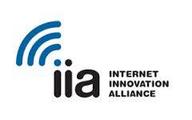IIA Hosts Events at RNC and DNC to Explore How Internet Investment and Innovation Have Empowered Americans to Shape Presidential Races
Pew Research Center to Present Its Latest Data on Campaign Communications, Followed by Panels of Experts and Events at Both Parties' National Conventions for Further Discussion
WASHINGTON, DC--(Marketwired - Jul 18, 2016) - The light-touch regulatory framework of the 1996 Telecom Act set the stage for extensive Internet network investment and innovation. To examine how this investment and innovation have empowered Americans to shape presidential races, the Internet Innovation Alliance (IIA) is today hosting "From Netscape to Snapchat: Politics in the Age of Broadband" at the Rock and Roll Hall of Fame in Cleveland from 12-2pm ET, during the Republican National Convention (RNC). To watch the event livestream starting at noon ET, go to http://bit.ly/29JxPAh.
IIA will hold an event focused on the same topic with different speakers at the Democratic National Convention (DNC) next Wednesday, July 27th from 5-7pm ET. To RSVP, go to http://bit.ly/2a0LZge.
IIA's events at the RNC and DNC will open with a presentation by Amy Mitchell, Director of Journalism Research at Pew Research Center, on "Presidential Campaigns & The Developing Role of Digital Connections." At 10am ET this morning, Pew Research Center released its latest data on campaign communications, revealing findings such as the following:
- 65% of Americans now get campaign news online.
- 30% of U.S. adults have turned to the Clinton or Trump campaigns for news and information about the election.
- In a study of the Facebook and Twitter pages of each candidate from May 11-31, 2016, 78% of Donald Trump's posts that contain links send readers to news media, compared to only 15% of Hillary Clinton's Facebook posts that contain links. On Twitter, the numbers are 48% and 25%, respectively. Clinton, on the other hand, is more likely to direct readers to her own campaign pages. On Facebook, 80% of links in Clinton's posts go to her campaign site, compared with none of the links in Trump's posts. On Twitter, the numbers are 60% and 20%, respectively.
- On Twitter, 78% of Trump's retweets are of tweets from accounts of the general public, compared to none of Clinton's retweets. On the other hand, none of Trump's retweets are of tweets from his campaign account, compared with 80% of Clinton's that come from her campaign account.
- Nearly 3-in-5 Americans are already worn-out by the amount of election coverage.
For more interesting numbers on "Presidential Campaigns & The Developing Role of Digital Connections," read Pew Research Center's full report at http://pewrsr.ch/29NtGdh.
After Mitchell's presentation at each convention, she will join the distinguished speakers below for panel discussions:
RNC
- Lee Dunn: Senior Counsel, Google
- Sara Fagen: Co-Founder, Deep Root Analytics; Partner, FleishmanHillard's specialty brand DDC
- Patrick Ruffini: Co-Founder, Echelon Insights; Chairman and Founder, Engage
- Bruce Mehlman (moderator): Founding Co-Chairman, Internet Innovation Alliance
DNC
Speakers for IIA's event at the DNC, which will be moderated by IIA Co-Chairman Jamal Simmons with opening remarks from Congressman Rick Boucher, former Chairman of the House Energy and Commerce Committee's Subcommittee on Communications and the Internet and Honorary Chairman of IIA, will be announced later this week.
The discussion at each event will explore:
- How has the way that presidential campaigns reach American voters evolved since 1996?
- How are Americans interacting with presidential campaigns today using social media and the web?
- Can social media have a truly significant impact on the outcome of a presidential race?
- Has the political process been effectively democratized by broadband?
"During the 1996 re-election campaign, presidential candidates primarily reached voters through traditional media -- one-way communication," explained Mehlman. "Americans were limited in how they could make their voices heard: writing or faxing a letter, picking up the phone, or visiting with candidates in-person. Today, there are many new channels for two-way and multi-way communication between presidential campaigns and voters."
Simmons added, "Americans are not only accessing campaign news and information from an array of sources online, but they're also shaping the conversation themselves via many of those same channels. The light-touch, bipartisan Internet policy promoted by the Bill Clinton Administration paved the way for the immense investment and innovation that fostered the vibrant broadband ecosystem that we have today. Thanks to the Internet, presidential campaign communications have evolved to the benefit of Americans."
To join the Twitter conversation around IIA's events at the RNC and DNC, use the hashtags #IIARNC16 and #IIADNC16. To learn more about the Internet Innovation Alliance, go to www.internetinnovation.org.
About The Internet Innovation Alliance
The Internet Innovation Alliance was founded in 2004 and is a broad-based coalition supporting broadband availability and access for all Americans, including underserved and rural communities. It aims to ensure every American, regardless of race, income or geography, has access to this critical tool. The IIA seeks to promote public policies that leverage the power of entrepreneurs and the market to achieve universal broadband availability and adoption.
Contact Information:
The Internet Innovation Alliance
Lauren DuBois
(917) 573-2485
lauren@internetinnovation.org
